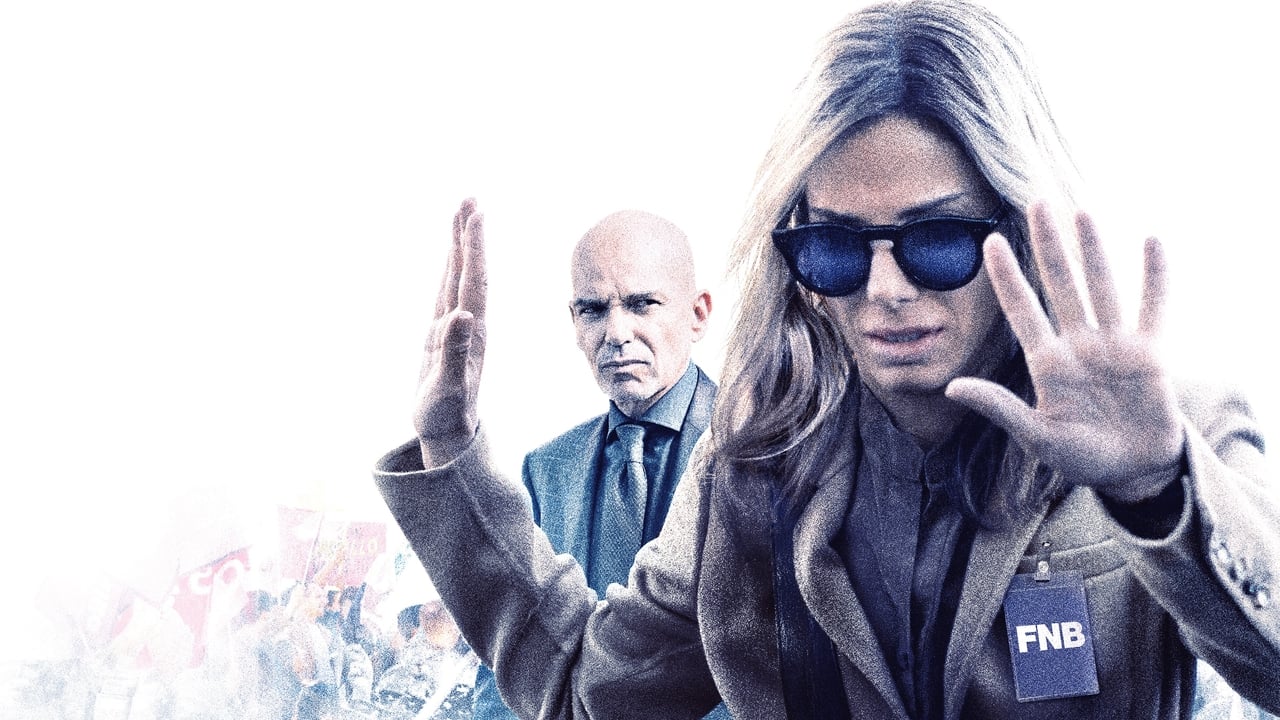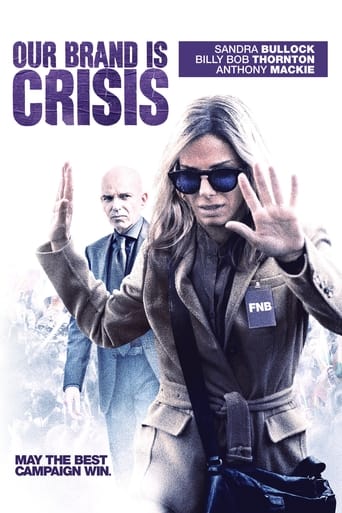

From an entertainment perspective the film was enjoyable and the climax was satisfactory and fulfilling. In fact those end scenes built up to quite a powerful and thought provoking finish which was a nice turn in pace in comparison to the rest of the movie - which focused more on comedy. The film had a good mix of seriousness and humor.The Script was pretty tight and displayed some humorous moments which did not detract from the story. It also had real heart. The choice of setting was really interesting. It allowed the film was show how people go in to countries with no consideration of the consequences of their actions and then happily leave as if nothing ever happened. Sandra Bullock's character was pretty intricate and multi-layered which was really cool to watch and her acting talents were strong in bringing out the various aspects of the character. Also, I would like to note that showing a strong woman in politics was bold and great to watch as she tried to thrive in the dog-eat-dog world of male-dominated politics. Sandra did a great job in applying these difficulties to her character and how it ground her down in some ways and drove her on in others. There were some moments where I was laughing, or shouting at the screen (the bus scene) or truly felt the intensity of the emotions of the characters (the ending ). All in all I thoroughly enjoyed this film and can't believe I hadn't heard more about it upon its release. 9/10
... View More"Our Brand is Crisis" saw its pre-release hype dissipate by the time it hit theaters for reasons I can't easily pin down with a few minutes of googling. What I can say is that it's a definite shame this film didn't make it into the conversation for Oscar or gross more than $7 million domestically, because it's a richly textured film with a well-paced sense of adventure and exoticism.The film revolves around the rivalry between two ace political strategists (Sandra Bullock and Billy Bob Thornton) working different sides of a Bolivian election with the cultural sensitivity of two seasoned board game players competing in a heated contest of Risk. Bob Thornton's character is based on James Carville (between this, Saturday Night Live, and Documentary Now, he seems to be a standard part of any impressionist's repertoire). Bullock channels a slightly darker version of her frazzled but endearing rom-com persona in a part that was originally scripted for a male character and she steals the show. A supporting cast of Scoot McNairy, Anthony Mackie, Zoe Kazan and Ann Dowd adds a cadre of characters with varying degrees of seriousness that makes for some memorable bantered dialogue. It's perhaps in keeping with the film's commentary on geopolitical ethno- centrism that the presidential candidatate (Joaquim de Almeida) is the least interesting character in the entourage. There is, however, a relationship that Sandra Bullock's character develops with a local teenager that comes closest to providing the film's protagonist with a moral awakening. The film successfully threads the needle of thought-provoking without being overly preachy, even if the resolution is slightly less profound than it thinks it is.
... View MoreOur Brand is Crisis is based on the 2005 documentary of the same name, which followed the participation of James Carville's consulting firm in the 2002 Bolivian campaign for president. Here, Sandra Bullock plays Jane Bodine, a fictionalized version of Carville, called out of semi-retirement, following a declining career as a campaign manager. Like Carville, she accepts the challenge to manage the presidential campaign of Pedro Castillo, a former president who leans to the right on the political spectrum. Bodine's nemesis, Pat Candy (portrayed as deeply cynical in Billy Bob Thornton's performance) represents the populist candidate, Rivera, who is way ahead at the beginning of the campaign in a three-way race.Sandra Bullock is a little better here in some of her previous comic roles (e.g. The Proposal, The Heat), as the initially burnt out Bodine, only engaging in her usual pratfalls (this time it's throwing up all over the place after arriving in Bolivia), at the beginning of the film, and later settling down as a determined strategist, who eventually outfoxes her aforementioned nemesis, Pat Candy.How far will Bodine go in manipulating the public's view of Castillo? This is essentially what keeps our interest as the narrative progresses to the climax—the results of the campaign for president. First Bodine notes that Castillo, with his flat demeanor, is unable to make a personal connection to the electorate. Eventually she softens him up so that he appears to be more emotionally accessible. The team concludes that Castillo must sell the idea to the Bolivian people that the country is in a "crisis," and Castillo is just the man to fix the dire problems facing the country.Bodine urges Castillo to adopt smear tactics against his opponent but the high-minded candidate refuses. It's only after Rivera smears Castillo regarding a long-ago extra-marital affair that Castillo relents and allows Bodine to adopt similar tactics. One of those strategies involves publicizing a photo of Rivera, with a Nazi war criminal, standing in the background.Perhaps the most dramatic moment in the film occurs when rocks are thrown at Castillo's campaign bus, forcing it to stop in a small town, where angry indigenous people are protesting the possibility that the International Monetary Fund (IMF) may be allowed into the country. Castillo gets out of the bus and confronts the protesters—promising that the IMF will not be accepted without a referendum. There is also a sub-plot involving Eduardo, a campaign volunteer, who feels connected to Castillo, since a photo was taken of him and the former president on the earlier campaign trail, when he was a child. Eduardo's family members don't share his enthusiasm for Castillo and castigate him for his allegiance to the right-wing candidate.As the film's antagonist, Pat Candy has little screen time, and his confrontations with Bodine mainly amount to a series of conversations that are well-written but don't raise any stakes. The most dramatic of these interactions between the two campaign managers occurs when Bodine tricks Candy into having his candidate reference a quotation attributed to Goebbels, Hitler's vile propaganda minister.When Castillo finally wins the election by the slimmest of margins, he goes back on his promise to hold a referendum on the IMF, alienating even Eduardo, one of his most ardent supporters. And Bodine, after informing Eduardo that she wasn't responsible for Castillo's deception regarding his campaign promise, later joins him in an unlikely show of solidarity with the people she worked against during the campaign.Our Brand is Crisis is thoroughly watchable despite a dearth of big dramatic moments and a significant antagonist that propels the action forward. It has been said that the film lost money because it was inaccurately billed as a comedy. Maybe so, but this dramedy is worth at least one look.
... View MoreThis movie was OK...watchable for the most part due to the usual good performances of Sandra Bullock and Billy Bob Thornton. An election in Bolivia (partially based on a true story) with behind the scenes goings-on of a professional organization dedicated to a successful campaign by instructing and molding the candidate (portrayed by Joaquim de Almeida).The movie really didn't have much of a "punch". The central subject was actually a very serious one, so the writers had few opportunities to slip in the Sandra Bullock type of humor. Possibly the problem is that so many have come to expect that elections are largely about manipulation so it's no surprise. Or maybe it's that this is the behavior we expect from so many politicians that we've come to accept and it's "no big deal".
... View More